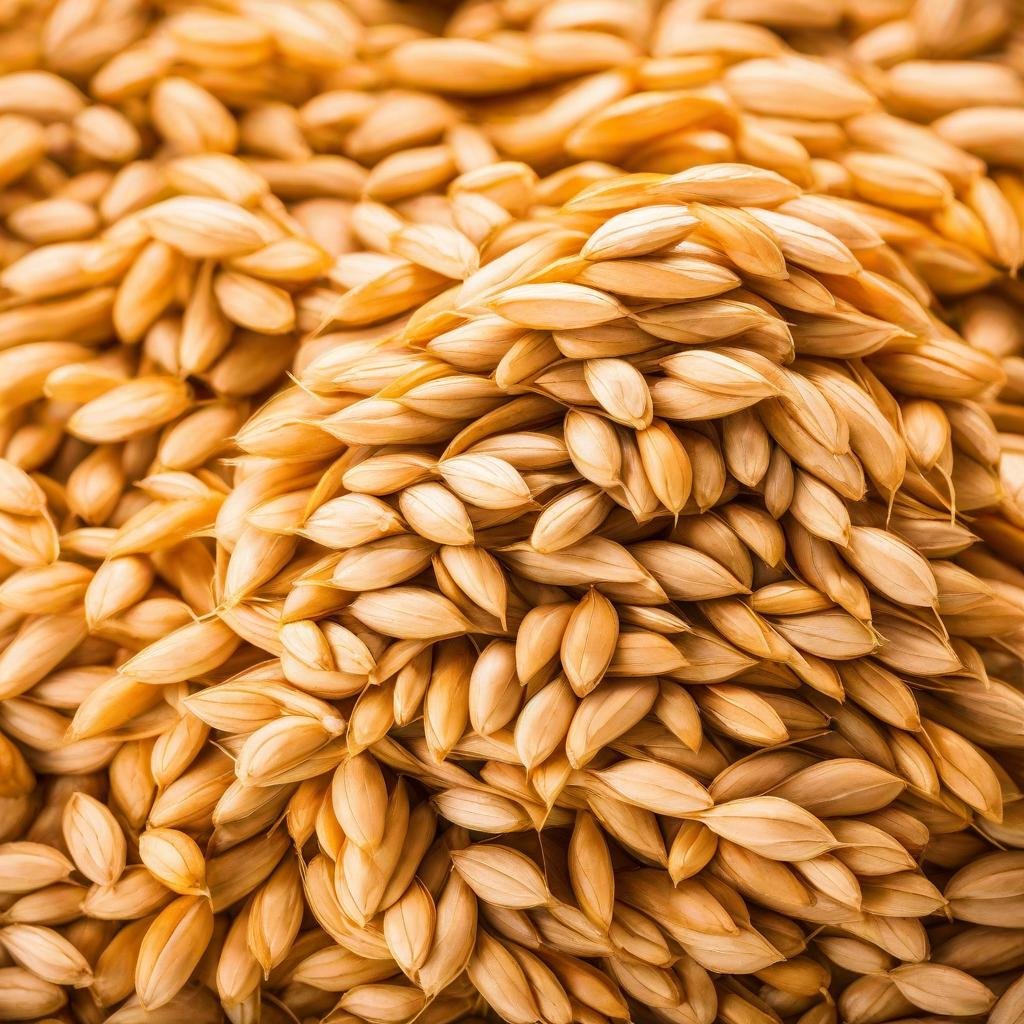Introduction:
Kamut® (pronounced ka-moot) shows a fascinating journey, traced back to grains discovered in an old tomb cave after World War II. Dubbed as King Tut’s wheat or Pharaoh’s grain, these grains, believed to originate from Mesopotamia, eventually became the foundation for today’s KAMUT® brand. More than a delightful taste, texture, and non-allergic properties, Kamut is made unique by its trademark, which guarantees the authentic, unadulterated, unhybridized, and non-GMO Khorasan wheat. Here are 10 ways that this ancient grain can help you find your inner strength again.
- Understanding Kamut
It is a whole grain, distinct from common wheat by its larger size, curved shape, and brown colour. With a buttery flavour and a firm texture, Kamut is a high-protein, fiber-rich alternative often used in place of rice. Originating from the Triticum turgidum family, its unique features include a delicious flavour and easy digestibility, making it a nutritious substitute for bulgur wheat. - The Story Behind Kamut
The intriguing journey of Kamut in the U.S. began when an American airman received some grains found in an Egyptian pyramid. Sent to his wheat farmer father in Montana, these grains found commercial success in 1977 when Mack and Bob Quinn decided to cultivate the ancient grain. By 1990, & it was registered as a protected trademark. - Nutritional Value
According to USDA data, 100 grams of uncooked Kamut provides essential nutrients, including proteins, fiber, vitamins, and minerals. it’s nutritional profile supports its reputation as a wholesome grain.
10 Health Benefits of Kamut

1. Balances Hormones
Zinc and manganese in Kamut play crucial roles in naturally balancing hormones, benefiting both men and women. A study demonstrated the positive impact of zinc on testosterone levels, indicating potential benefits for reproductive health.
2. Strengthens Immune System
Kamut, which is high in zinc and selenium, strengthens the immune system and helps fight off bacteria and viruses. It has also been linked to preventing the symptoms of the common cold.
3. Increased Stool Frequency
Dietary fiber in Kamut may contribute to increased stool frequency, potentially beneficial for individuals dealing with constipation.
4. Benefits for Gut Microbiota

Recent research suggests that Kamut positively influences gut microbiota, with potential health benefits, especially for conditions like fibromyalgia.
5. Lowers Cholesterol
Kamut’s high fiber content aids in lowering cholesterol, as demonstrated in a 2013 study comparing Kamut wheat to semi-whole-grain wheat.
6. Supporting Bone and Thyroid Health
Kamut’s rich magnesium content contributes significantly to overall bone health, while its sufficient selenium content is crucial for optimizing thyroid function.
7. High Source of Protein

Kamut’s high protein content supports various bodily functions, including weight management, as indicated by a scientific review.
8. Aids Weight Loss
The combination of fiber and protein in Kamut contributes to feelings of fullness, supporting weight management.
9. Improves Carotenoid Intake
Studies suggest that ancient grains like Kamut contain higher amounts of lutein, a carotenoid associated with improved visual function and reduced risks of chronic diseases.
10. Supports Brain Health
The manganese in Kamut contributes to cognitive health, making it a valuable addition to a brain-boosting diet.
Ways to add Kamut into Your Diet

- For a healthy breakfast bowl, replace your oats in the morning with Kamut grains and top with nuts, fruits and a favourite honey or chocolate syrup.
- Enhance the nutritional content of soups and stews by adding Kamut grains.
- Add a protein and fiber-rich garnish of cooked Kamut grains to your salads to make them stand out.
- Use Kamut’s buttery flavour by mixing it into your bread, waffles, pancakes, and baked products.
- Create a quick and hearty Kamut porridge by blending the grains in your food processor.
Risks and Side Effects: Know Before You Consume
While it’s generally safe for consumption, it’s essential to be aware of potential risks and side effects. With a gluten content lower than whole wheat, Kamut may be more easily digested, but those with severe gluten intolerance, such as celiac disease, should exercise caution. Starting with small amounts allows you to gauge your body’s response. If you experience nausea, headaches, or skin irritations, consult your healthcare provider, especially if the side effects are severe.
Kamut: Frequently Asked Questions
- Why is kamut good for you?
it’s good for you due to its nutritional richness, including high protein, fiber, and essential minerals, contributing to overall health and well-being. - Is kamut healthier than oats?
Kamut and oats offer distinct nutritional profiles, but Kamut’s unique combination of nutrients may provide additional health benefits. - Is kamut better than wheat?
Kamut, being a type of wheat, offers its own set of nutritional advantages. Its unique characteristics and nutritional composition make it a valuable addition to a balanced diet. - Is kamut easy to digest?
Yes, it’s known to be more easily digestible than whole wheat products, making it suitable for individuals with mild gluten sensitivities. - Is kamut a superfood?
While the term “superfood” lacks a strict definition, it’s nutrient density and health benefits contribute to its classification as a nutritious food choice. - Is kamut better than rice?
Although rice and kamut have varied uses in the kitchen, kamut’s higher protein and fibre content makes it a healthier option in certain cases. - What are the top 5 healthiest grains
The healthiest grains include Kamut, quinoa, finger millet, brown rice, and barley, each offering unique nutritional benefits. - What is another name for Kamut?
it’s another name for khorasan wheat, a specific type of ancient grain. - Is Kamut a complete protein?
While Kamut is a good source of protein, it may not be considered a complete protein on its own. Combining it with other protein sources enhances its nutritional value.
Conclusion:
In conclusion, Kamut stands as a remarkable grain with a rich history and a myriad of health benefits. Adding Kamut to your diet can be a flavorful and nutritious choice, supporting various aspects of your well-being. With its versatility and unique characteristics, Kamut is a valuable addition to a balanced and wholesome diet, easily accessible at your local grocery or health food store. Explore the possibilities of this ancient grain and embark on a journey to revitalize your inner strength through Kamut’s wholesome goodness.
